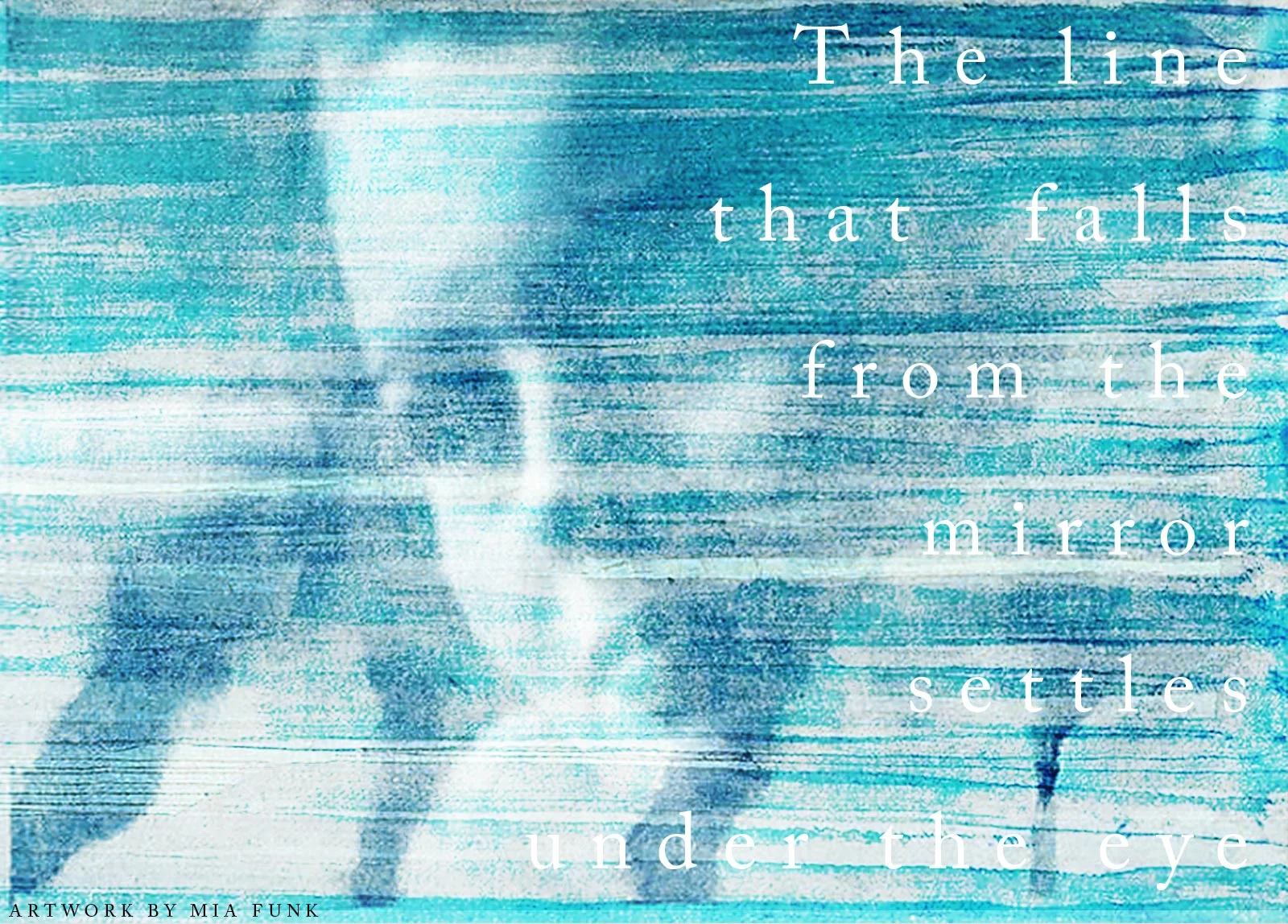forgive me for the terrible things I’ve seen
among you
because i walked away from you with violets in my hand
forgive me
–LÂLE MÜLDÜR
“The Cyclamen (Mary-Incense)”
Translated by Burak Erdoğdu / Roza Publishing
Read Turkish version
Narin Yükler's Creative Process
Stories of homes are hidden in its roof
In its color there are burns of the sorrow
Roads can not be used for traveling
At the borehole there is a sad song of the bride that tears apart the morning
Bread that made from the fame which sieved thinly heats the bare foot
Sits on the fire, a mom’s unburned sadness
A sleepless history records rooms
At the back of the door mom smokes the memories
Lots of lives reflects on the mirror
The line that falls from the mirror settles under the eye
Girl stays still with her long hair
Frame is the enemy for mudbrick walls that does not break the memories
Her daughter who runs away is worst thing for the mother
-
Aynadan düşen
evlerin hikâyesi saklıdır damında
renginde efkâr yanıkları
önünde gidilemeyen yollar
kuyu başı yeni gelin türküsü yıkar sabahı
ince elenmiş undan pişirilen sac ekmeği ısıtır çıplak ayağı
ateşte durur, bir annenin yanmamış âhı
uykusuz bir tekrar tutar zaptını odaların
kapı ardında bir anne tüttürür hatırayı
yük yerine dizili yastık sayısınca ömür düşer aynaya
aynadan düşen çizgi yerleşir gözaltına
orada durur kızı, uzun saçlarıyla
çerçeve hısmıdır artık kerpiç duvarın, kırmaz hatırayı
bir annenin kaçıp gitmiş kızıdır en sızılı yanı
Narin Yükler was born in Viranşehir of Şanlıurfa in 1988. She graduated from the Tourism and Hospitality Management School of Gaziantep University and from the Faculty of Business Administration of Anadolu University. After graduation, she started to work as a hotel manager. She got married in 2012 and had her daughter in 2014. During that time, she took part in the activities of various non-governmental and human rights organizations, especially women’s rights organizations.
Many of her stories and poems about Middle Eastern–especially Kurdish/Ezidi–women were published in several newspapers and magazines in Iraq, Belgium, Pakistan, Iran, and Turkey. She held meetings in refugee camps where she read her poems written in Kurdish and Turkish languages. She has written theatrical plays on the human and women’s rights, some of which were staged. Being a woman, a mother and a refugee in the Middle East. Her poetry books include Aynadaki Çürüme and Rê û Rêç. Her awards include KAOS GL Short Story Award – Selection Committee (2015), Hüseyin Çelebi Poetry Prize (2015), Ali İsmail Korkmaz Poetry Prize (2016), Golden Daphne Award For Young Poets – Selection Committee (2016), Arkadaş Zekai Özger Poetry Award (2017) and the Arjen ArÎ Poetry Award (2017).
-
MY CREATIVE PROCESS
Can you tell us a little about the origins of this series of poems?
My poetry deals with war, women, and migration.
Why do you write?
To cling to life. I live in the Middle East and have seen many countries in the Middle East. I wrote scripts and poems during these travels. Writing is a way of defending life. And therefore I see literature as necessary. Yes, we can not change the world by typing, but we can tell what causes war and immigration. I want to tell everyone about it.
Tell us about some of your formative influences and teachers who have been important to you.
My teachers encouraged me to read. I started to study philosophy. I write poetry and I cannot write poetry without reading philosophy.
The Future – What are you currently working on?
I'm working on a Kurdish poem. I am living in the heat. I want to develop projects related to refugee flags and children. I am interested in making documentaries, films, and poetry workshops.















































































